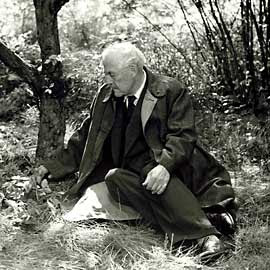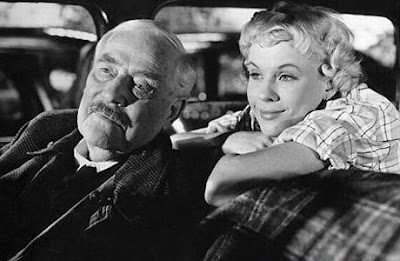"I hope I never get old so I get religious"

the family.

Dr Isak Borg visits a number of places that hold precious memories of his c
hildhood and adolescence. He has always been busy doing something else,instead of enjoying the company of the ones he loved. One of the places is a strawberry lawn, where he fe lt in love and lost his lover because of his brother. He meets three youngsters going away traveling and a married couple with problems. They all end up in his big car and through them, he relives some of the sorrow he'd had,as well as the best years of his youth.


I love the part in the beginning, when Isak has a nightmare of being death. It features stunning elements from the German expressionism and it makes you read the frame, be active in the process of watching. In a way, this film makes me very calm through the use of white colors, but also provokes interest to find out what is going on deep under surface.


When Bergam has made this film, he though it was about a doctor with certain flaws and that was all. Later on he admitted to himself, it is actually exploring his own family. It is interesting how much our lives influence the films we make, without realizing. In screenwriting, they make us admit out darkest secrets, so we are aware of what really bothers us.
Bergman believed that Dr Isak was his father. Only after a few years he was able to admit it was himself he was trying to portray, through the experience in his family. He has felt as an unwanted child, and has grown up in the same atmosphere that has produced Isak. The final scene in the end sums up beautifully Bergman's dearest memories and longings of his family at the sea coast, enjoying the afternoon fishing.

In a way, Bergman reminds me of Wong Kar-wai because of the similar philosophical topics they explore. Both of them intrigue the audience with the deep psychology going through the
characters.






